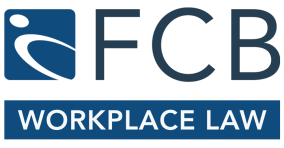Franchisor Compliance Obligations: Vulnerable Workers Legislation Passed!
September 8, 2017The long-anticipated Fair Work Amendment (Protecting Vulnerable Workers) Bill was passed by the Australian Parliament despite efforts of the Franchise Council of Australia (FCA) to significantly minimise the scope and coverage of the proposed legislation.
What is the risk?
The legislation places significant additional responsibility on franchisors for the employment practices of their franchisees and franchisors will now be directly liable for non-compliance within their network. Any franchisor that was betting on the legislation not eventuating or hoping the FCA could water down the impact was sorely mistaken.
What are the penalties for getting it wrong?
The legislation has increased the penalties for serious contraventions by ten times meaning that individuals can be fined $126,000 for managers or directors and $630,000 for companies per contravention. There are also increased penalties for record-keeping failures and the legislation creates a reverse onus of proof that employers and franchise groups must satisfy when they are unable to produce employment records.
The new laws will double the maximum penalties for record-keeping and pay slip breaches, to $12,600 per contravention for individuals and $63,000 for companies. Last financial year two-thirds of the FWO’s court cases involved alleged record keeping or payslip contraventions.
What are the chances of getting caught?
The Fair Work Ombudsman has been given new evidence-gathering powers to ensure that the exploitation of vulnerable workers can be effectively investigated. The franchise industry has been specifically targeted by the FWO who will be running aggressive campaigns targeting all franchisors. The FWO has also received an increase in funding to help put more inspectors on the road. All franchisors should expect that they will get the attention of the FWO at some stage and need to be ready when they come knocking.
The Fair Work Ombudsman Natalie James stated “employers who know their obligations and systematically fail to meet their workplace obligations should be on notice that we will use all the powers at our disposal… now is the time for franchise systems that care about their reputation to take steps to ensure their employees receive their lawful entitlements”.
What about accessorial liability?
New legal obligations and risks have been created and the existing accessorial liability provisions continue to apply, which means Directors, Managers and Advisors may be held individually liable.
What should a franchisor or holding company do?
Although the franchise sector has had significant advance notice of the proposed legislation many have failed to take appropriate action. The following proactive steps should be considered immediately:
- Conduct audits to assess the risk of their existing state.
- Educate franchisees as to compliance expectations.
- Ensure that franchisees have appropriate systems for controlling their employment structures and employment records. Employers who do not meet record-keeping or pay slip obligations and cannot show a reasonable excuse, will need to disprove wage claims made in a court.
- Implement an employee complaints handling process.
- Ensure franchise agreements or other business arrangements require franchisees to comply with workplace laws.
- Obtain expert advice in the event that they are approached by the regulator so that they clearly understand their rights and their obligations.
- Implement regularly reporting to the Board on the above compliance initiatives.
Can I claim legal professional privilege?
Yes, you can claim legal professional privilege provided the advice or audit was undertaken by lawyers and contemplated for the purpose of assessing potential litigation risk. You may also have a lawyers present if you are required by the Ombudsman to attend and ask questions.

























